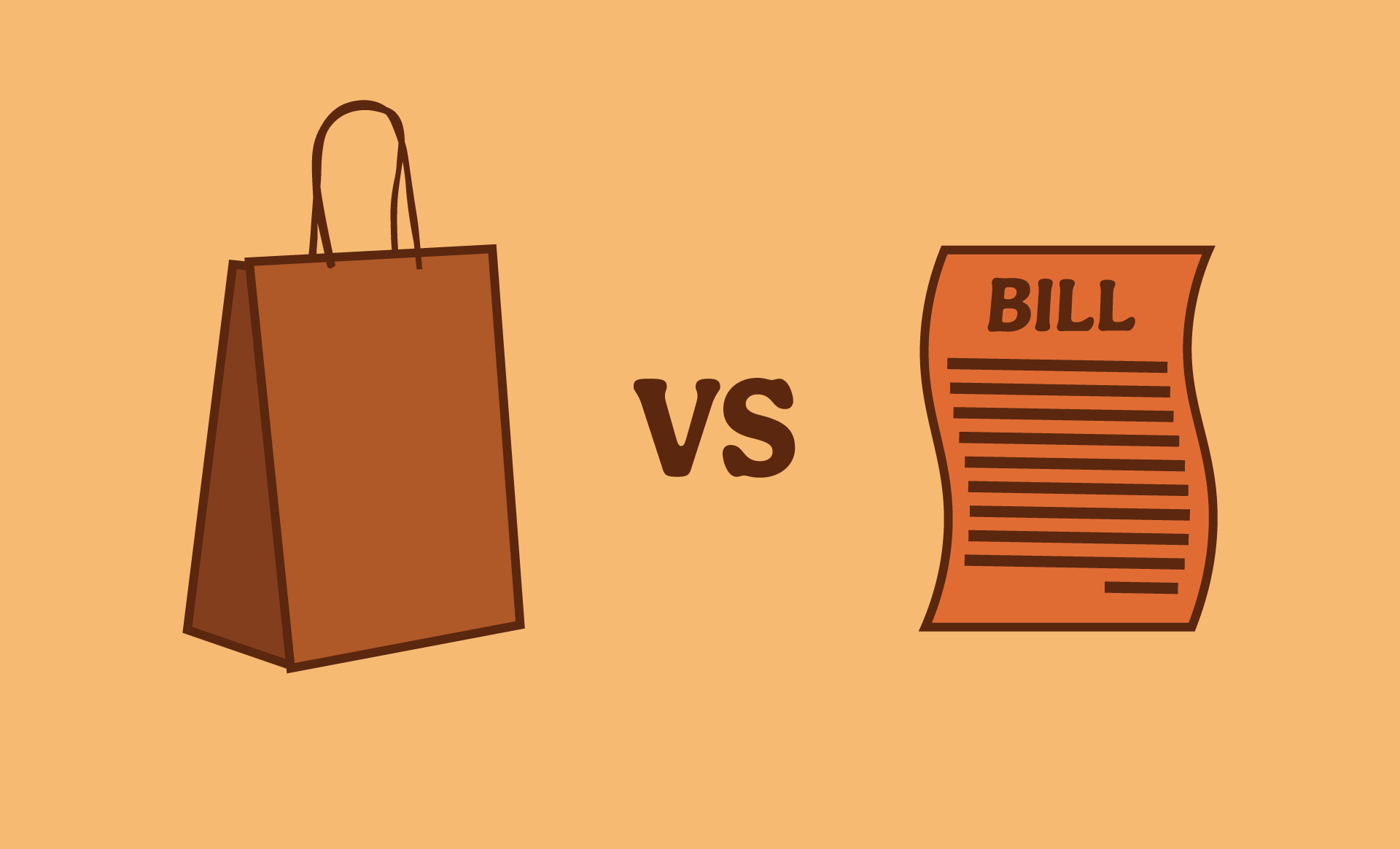Fixed or Variable?

We believe that it’s important to understand the difference between fixed and variable expenses when creating a budget. Why? Because how you budget for one may look slightly different than how you budget for the other.
So, what are fixed and variable expenses? Well, fixed expenses are those that cost the same each month. Some of examples of these expenses may be:
- Rent
- Phone bill
- Car insurance
- Streaming service subscription

Since these expenses are more constant, it’s easier to create a budget for them. To do this, try making a list of all your fixed expenses and calculate their total cost each month.
Variable expenses, on the other hand, are a bit more difficult to work with and budget for.

These expenses are the ones that are subject to change each month. They include more of your everyday spending, such as:
- Food
- Utilities
- Clothing
- Entertainment
To create a budget for your variable expenses, we recommend first tracking them to figure out how and where your money is spent. With this, you can then decide how much you want to allocate to these expenses each month; those of which you can categorically budget for if you wish to do so (i.e. food, entertainment, etc.).

Saving money on fixed and variable expenses can be challenging for different reasons, which is why we want to share some tips on how you might go about doing so for both.
Sometimes fixed expenses can be quite difficult to cut down on, but that doesn’t mean it’s impossible. We recommend shopping around for the best deals on your insurance, cell phone plans, etc. A lot of these expenses are necessary but think about the ones that aren’t. Do you really need a subscription to Netflix, Disney+, and Hulu? Unfortunately, the answer is no. No because these are wants, not needs. But maybe these wants are at the top of your wants list, and therein lies the key to budgeting: prioritizing.

Everyone’s priorities differ so it’s extremely important to consider what yours are. We know it can be frustrating to give up things you want, but do your best to prioritize your spending and make rational decisions when allotting your money. We recommend looking over your spending before even considering your budget. That being said, if you’ve come to this page without reviewing our section on Spending, we suggest doing so now.
You’ll most likely have to make even harder decisions when dealing with your variable expenses. Saving on these expenses requires you to make adjustments to your lifestyle and shift the way you make decisions on a day-to-day basis. It’s frustrating, unfortunately, but you have much more control over your variable expenses than your fixed ones. For some tips on doing so, we once again recommend taking a look at our pages on Spending.
Want to keep hiking?
Financial Beginnings is a national 501(c)(3) nonprofit that empowers youth and adults to take control of their financial futures. Their educational programs incorporate all aspects of personal finance to give individuals the foundation they need to make informed financial decisions. Financial Beginnings reaches more than 200 K-12 schools and colleges and more than 100 community-based organizations annually, serving all groups with special focus on populations most in need. For more information, visit www.financialbeginnings.org.